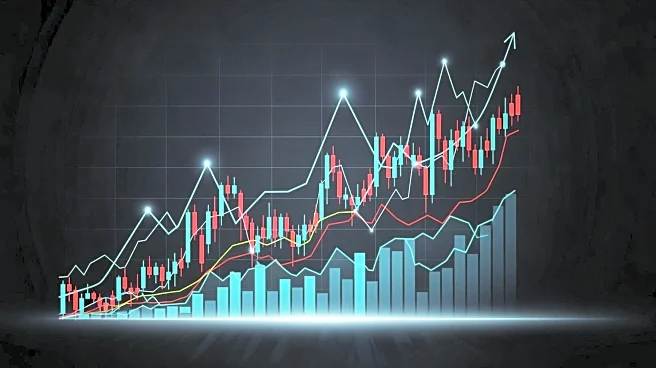What's Happening?
Retail investors have played a significant role in supporting the stock market, particularly the S&P 500, despite various economic challenges. Their 'buy-the-dip' mentality has been crucial, with retail
traders buying more while institutional investors often de-risked. This trend has been supported by increased trading activity on platforms like Charles Schwab, which reported a 30% increase in daily trades in the last quarter. On October 10, retail traders contributed to the largest options volume day ever, with over 108 million contracts traded, showcasing their bullish conviction. This activity has helped the S&P 500 rise nearly 2% this week, following a significant dip last Friday.
Why It's Important?
The involvement of retail traders in the stock market is reshaping traditional market dynamics, where institutional investors were typically seen as the 'smart money.' Retail traders' continued investment has kept the market buoyant, even as hedge funds and other institutional investors have been more cautious. This shift could have long-term implications for market strategies and investor behavior. The increased trading activity also reflects broader economic confidence among retail investors, which could influence market trends and economic forecasts.
What's Next?
Looking ahead, the market may experience seasonal strength in November, potentially driving further gains. However, experts like Scott Rubner from Citadel Securities advise caution over the next few weeks, suggesting that investors should be prepared for potential volatility. The ongoing support from retail traders will likely continue to be a key factor in market movements, and their behavior will be closely monitored by analysts and institutional investors alike.
Beyond the Headlines
The rise of retail traders highlights a democratization of market participation, where individual investors have more influence than ever before. This trend raises questions about market stability and the potential for increased volatility, as retail investors may react differently to market signals compared to institutional investors. Additionally, the reliance on platforms like Charles Schwab underscores the importance of accessible trading technology in empowering retail investors.









